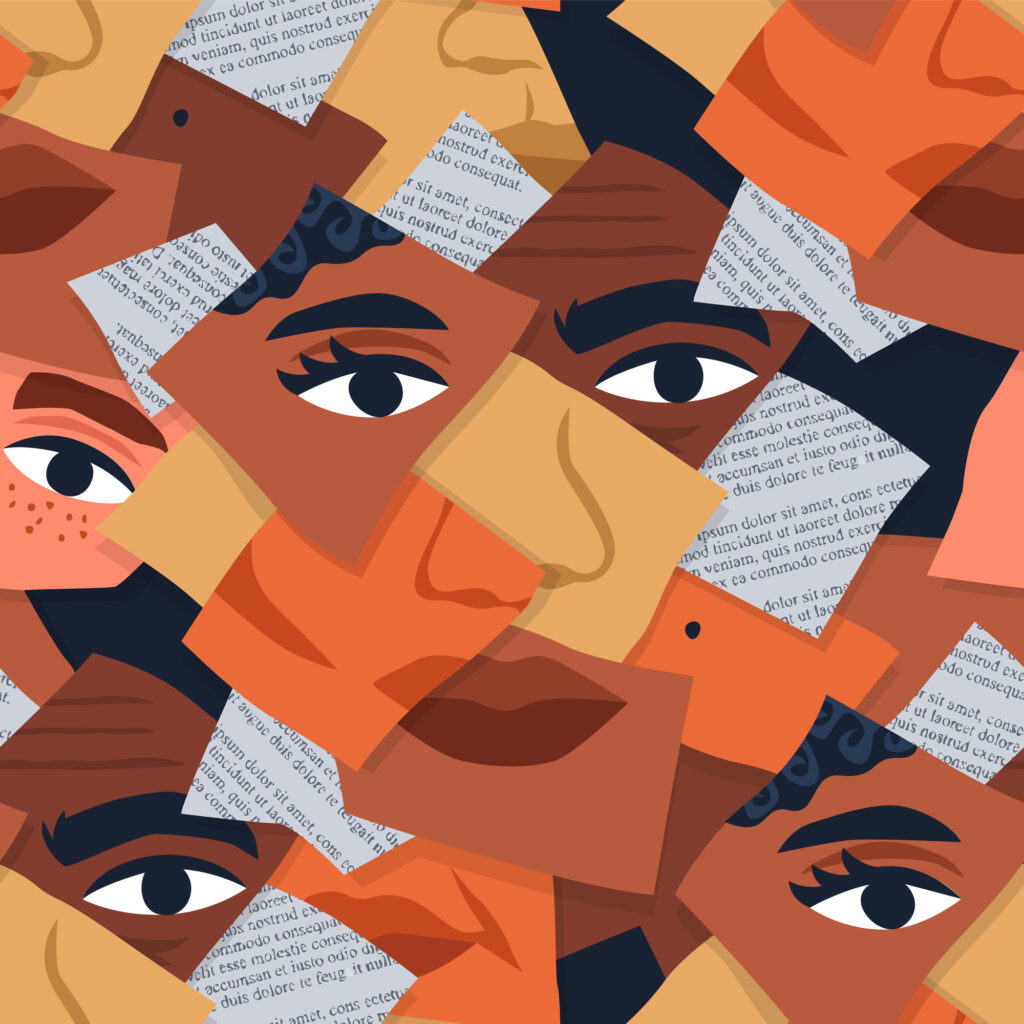Introduction
The phrase “Black is bad” encapsulates a deeply entrenched narrative in Western society that associates Blackness with negative attributes. This article explores the psychological implications of this narrative, examining its roots in systemic racism and the internalization of these beliefs within the Black community. Through a psychoanalytic lens, we can better understand the complex dynamics at play and explore pathways for healing through Psychotherapy.
The Historical Context
The notion that “Black is bad” has historical roots in the dehumanization of Black individuals during slavery, segregation, and ongoing racial discrimination. This pervasive narrative has led to the systemic devaluation of Black identity and culture. The psychoanalyst Frantz Fanon articulated this struggle in his seminal work, Black Skin, White Masks[1], where he described the psychological effects of colonialism and racism on Black identity. Fanon argued that Black individuals often internalize the negative perceptions imposed by a racist society, leading to feelings of inferiority and self-doubt.[2]
The Psychological Impact
Internalized Racism
The internalization of the belief that “Black is bad” manifests as internalized racism, where individuals adopt society’s negative perceptions of their racial identity.[3] According to research by Cokley et al., internalized racism significantly correlates with low self-esteem and poor mental health outcomes among Black individuals[4]. This internal conflict creates a schism in the psyche, as individuals grapple with self-acceptance while simultaneously absorbing societal prejudices.
Double Consciousness
W.E.B. Du Bois’s concept of “double consciousness”[5] further elucidates this psychological struggle. Du Bois describes the tension that Black individuals experience as they navigate their own self-perception and the perceptions imposed by a racially biased society . This dual awareness can lead to a fragmented identity, where one’s Blackness is perceived as a liability rather than a source of strength.
Shame and Stigma
The narrative that “Black is bad” fosters a culture of shame and stigma within Black communities. As noted by social psychologist Derald Wing Sue, microaggressions—subtle, often unintentional expressions of racism—perpetuate these negative associations, reinforcing the idea that Black individuals must constantly prove their worthiness.[6] This can lead to avoidance behaviors, anxiety, and a reluctance to embrace one’s cultural identity.
The Role of Psychotherapy
Psychotherapy offers a framework for understanding and addressing the psychological wounds inflicted by systemic racism and internalized beliefs. By centering Black experiences and narratives, this approach provides a pathway for healing.[7]
Affirming Identity
Psychotherapy emphasizes the importance of affirming Black identity as a means of combating internalized racism. By creating therapeutic spaces that validate cultural heritage and lived experiences, therapists can help individuals reclaim their self-worth. As noted by psychoanalyst Kenneth B. Clark[8], positive racial identity can act as a buffer against the negative effects of racism.
Exploring Collective Trauma
Psychoanalysis also allows for the exploration of collective trauma within the Black community. The concept of transgenerational trauma, as discussed by psychiatrist Joy DeGruy, highlights how the effects of slavery and systemic oppression can be passed down through generations.[9] Therapeutic interventions can address these traumas, fostering resilience and a sense of community among individuals.
Fostering Dialogue
Engaging in open dialogue about race, identity, and the psychological impact of systemic oppression is crucial for healing. Black psychoanalysts can facilitate conversations that encourage self-reflection and collective healing, helping individuals navigate the complexities of their identity in a society that often marginalizes them.
Conclusion
The narrative that “Black is bad” is not just a superficial phrase; it carries profound psychological implications that impact the self-perception and mental health of Black individuals. Through a psychoanalytic understanding of internalized racism, double consciousness, and collective trauma, we can begin to unpack the complexities of this narrative. Psychotherapy offers a vital pathway for healing, empowering individuals to reclaim their identity and challenge the harmful stereotypes that persist in society.
By fostering environments that validate and celebrate Blackness, we can contribute to a more equitable society that acknowledges the value and dignity of every individual, regardless of race. By critically engaging with these narratives and utilizing psychoanalytic tools, we can begin to dismantle the harmful belief that “Black is bad” and pave the way for healing and empowerment within the Black community.
[1] Fanon, Frantz. “Black skin, white masks.” Social theory re-wired. Routledge, 2023. 355-361.
[2] Andry, Katrina M. Western interpretation of the other: How the perpetuation of negative stereotypes against Blacks have shaped our culture. Louisiana State University and Agricultural & Mechanical College, 2010.
[3] Smith, Linda Marie. Contributions to understanding self-image in Black Americans: do Black Americans feel that Black is beautiful?. The Wright Institute, 1980.
[4] Brick, Robert H. “On the Appropriateness of Testing Black Self-Concept.” (1977).
[5] Pittman, John P. “Double consciousness.” (2016).
[6] Sue, Derald Wing, et al. “Racial microaggressions in everyday life: implications for clinical practice.” American psychologist 62.4 (2007): 271.
[7] McKenzie, K. “Being Black is bad for your mental health.” The Guardian. http://www. guardian. co. uk/commentisfree/2007/apr/02/comment. health (accessed Febuary 15, 2011) (2011).
[8] Pettigrew, Thomas F. “Racial Integration Today: Revisiting Kenneth B. Clark’s Vision.” (2004).
[9] DeGruy, Joy, et al. “Racial respect and racial socialization as protective factors for African American male youth.” Journal of Black Psychology 38.4 (2012): 395-420.

